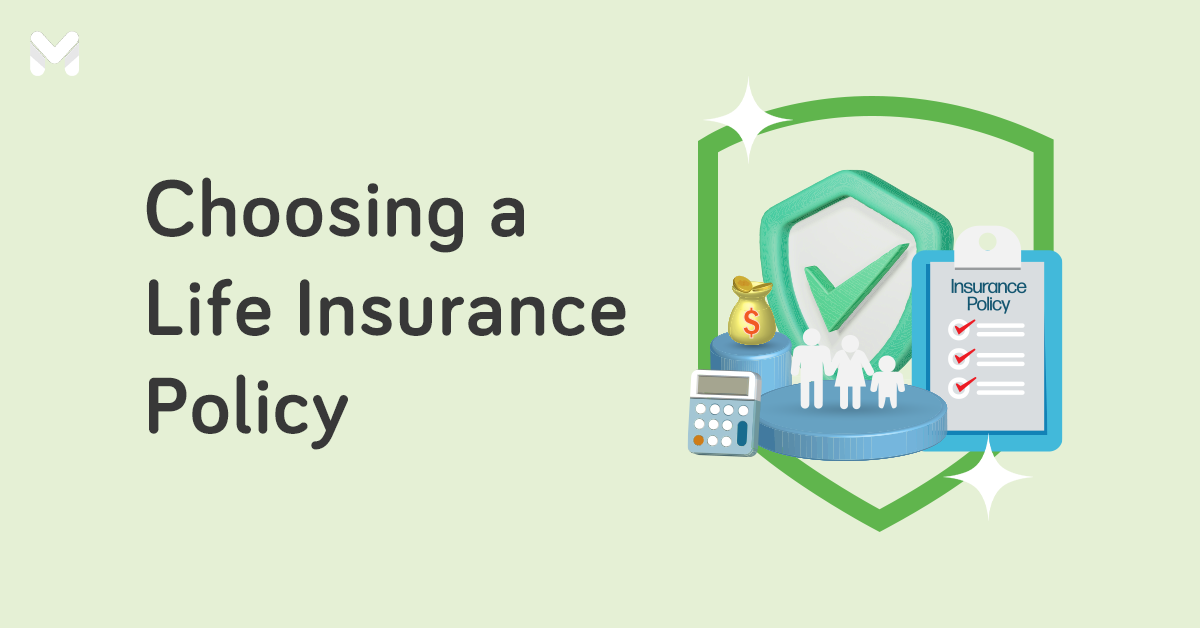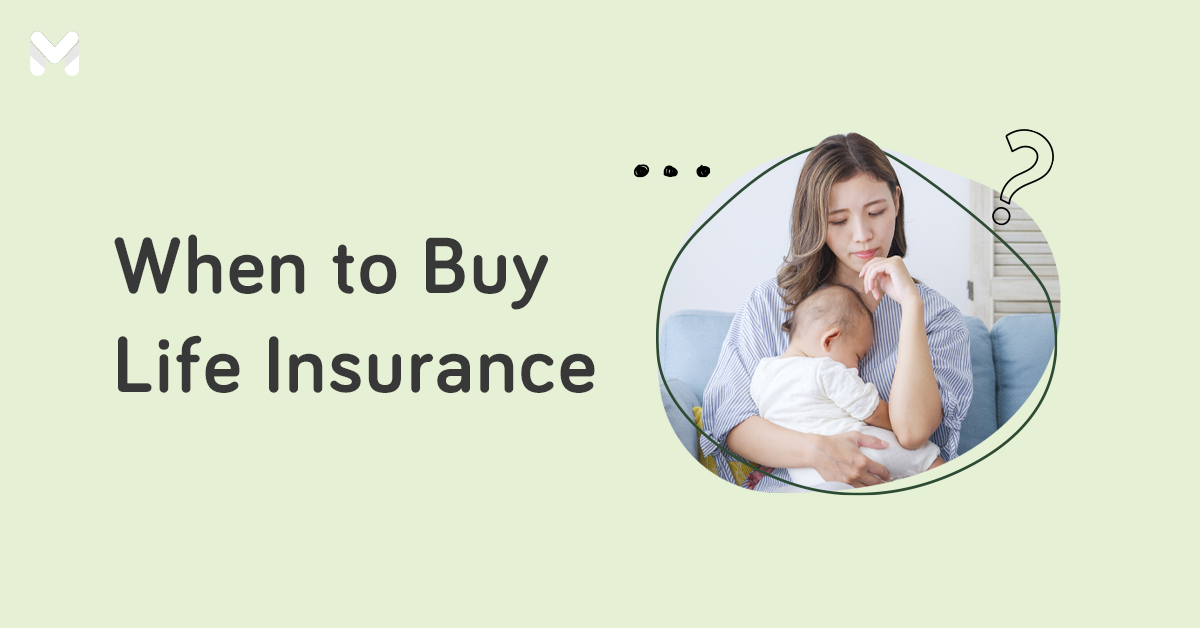You may have heard of the benefits of life insurance and its importance in financial planning. But you may not be 100% sure what life insurance is and how it works.
It's intimidating for the uninitiated, but fortunately, the basics are pretty simple. Learn more about it in this beginner-friendly primer on life insurance.
What is Life Insurance and How Does It Work?
-3.png?width=600&height=400&name=Pics%20for%20blog%20-%20600x400%20(56)-3.png)
Life insurance is a contract between the life insurance policyholder and the insurance provider. Although every life insurance policy is different, it’s identified by the following:
- Insurer - The company that provides life coverage. In the Philippines, life insurance companies are supervised and regulated by the Insurance Commission.
- Policyholder - The person, or in some cases, the entity (business or family trust) that owns or holds the policy
- Insured - The person whose life is insured by the insurer
- Premium - What the policyholder must pay to the insurer to keep the life insurance policy active
- Beneficiary/ies - The individual/s or entity/ies who will receive the death benefit
- Death benefit - The amount the insurer will pay to the beneficiaries upon the insured’s death
- Living benefit - Perks offered by life insurance policies allowing policyholders to access a part of their death benefits while they're still alive
- Policy term - The period the policy is in force and will pay out the death benefit to the beneficiaries
The policyholder pays the premium in a single upfront payment or over a period of time. In turn, the insurance provider promises to pay the death benefit to the beneficiaries upon the policyholder’s death.
But it’s not all about death benefits. A life insurance policy can also offer living benefits through insurance add-ons. These add-ons or riders allow the insured to tap into the policy’s death benefit while still alive.
Read more: Do You Really Need Life Insurance? Yes—Here's Why
👉 Term and Permanent Life Insurance
The most common types of life insurance you’ll encounter are term and permanent life insurance.
Also known as pure life insurance, a term life insurance policy offers protection for a specific period, usually one, five, or ten years, or up to a certain age only. It’s solely designed to give a lump sum payment to the beneficiaries when the insured dies.
When the term insurance expires, you no longer have insurance coverage. Since it has no cash value and provides less coverage, it’s also one of the cheapest life insurance options.
Meanwhile, permanent life insurance covers the insured person for their entire lifetime and combines death benefits with a savings or investment component. It’s more expensive than term insurance because of the extended coverage period. Its cash value also grows.
Read more: What is the Best VUL in the Philippines and How Does It Work?
What is the Purpose of Life Insurance?
-3.png?width=600&height=400&name=Pics%20for%20blog%20-%20600x400%20(57)-3.png)
Life insurance cannot make up for the loss of a loved one or fill the void they leave behind. However, it can provide financial support for any challenges the bereaved family members may face after the policyholder’s death.
A life insurance policy aims to protect yourself and your loved ones from financial hardship. Its living and death benefits can cover many expenses and help fill the gaps to meet financial obligations.
With suitable insurance riders or add-ons, you can use it to supplement your income in case of disability or help pay for medical treatments in case of critical illness. It can pay for funeral expenses, personal debt, and other day-to-day expenses.
Life insurance is also a good option if you want to leave an inheritance for your grown children and grandchildren through the lump sum they will receive when you’re gone.
Related: Moneymax and FWD Life Insurance Empower Filipinos to Make Better Financial Decisions
What Life Insurance Covers and What it Doesn’t
Life insurance policies generally cover deaths from natural causes, accidents, and illnesses.
So if the insured dies of a heart attack, stroke, cancer, kidney failure, an infection, or natural causes like old age, their beneficiaries will receive the life insurance death benefit.
They will also be paid death benefits if the insured dies from a vehicular accident, fire, drowning, and other forms of accidental death.
Murder is typically covered if considered manslaughter or homicide, and the beneficiaries have nothing to do with the insured’s death.
Suicides, on the other hand, are not covered typically within one year from the effectivity or latest reinstatement date.
All life insurance policies have a contestability period, which is a contractual provision giving the insurance company the right to contest or dispute the validity of a life insurance policy.
The contestability period is usually one or two years from the insurance policy effectivity date. During this period, the insurer can investigate the life insurance application for misrepresentation and fraud and deny any life insurance claims.
This is why it’s essential to check the life insurance policy’s inclusions and exclusions before entering a contract with an insurer.
Related: Should You Get Life Insurance? Consider These 8 Factors
How Much Does Life Insurance Cost?
-3.png?width=600&height=400&name=Pics%20for%20blog%20-%20600x400%20(58)-3.png)
Several factors affect life insurance costs, including:
- The age of the person to be insured
- Gender (women live longer than men, hence, they have cheaper life insurance policies[1])
- Health and medical history
- Coverage amount
- Type of life insurance (term or whole life)
- Riders or add-ons
- Occupation or hobbies
The younger and healthier a person is, the lower their life insurance premium will be. This is because the statistical odds of dying at a younger age are lower. This lowers insurance companies' financial loss risk, so in turn, they charge lower premiums.
Meanwhile, as people grow older, the odds of getting sick and dying also increase, which increases the financial risk to insurers. Life insurance will be more expensive because of the higher chances of filing a death benefit claim.
High-risk occupations and hobbies also affect life insurance costs. You can get charged more if you're an aviation, mine, or construction worker, a first responder, a law enforcer, or a worker in war zones or emerging countries.
If you enjoy slightly risky hobbies or regularly engage in activities that increase your chances of death, your life insurance premium can get substantially higher as well. These high-risk hobbies include aviation, BASE jumping, skydiving, rock climbing, scuba diving, and hang gliding.
Read more: Secure Your Future with the Best Life Insurance in the Philippines
Final Thoughts
Now that you know what life insurance is and how it works, you can find the right policy for your needs. To save you the hassle of combing through many life insurance products, use Moneymax to compare, get a quote, and apply for the best FWD Life Insurance plan for you.
Whether you’re looking for a policy with a benefit term of one year or up to age 100, there’s an FWD insurance plan that suits your needs and budget. Click the banner to learn more:
DISCLAIMER: This article was created in partnership with FWD Philippines. While we are financially compensated for this collaboration, we ensure to maintain our editorial integrity to provide you with the best recommendations that can help you make smarter financial decisions.
Source: [1] 7 Factors That Affect Your Life Insurance Premium (Investopedia)







_1200x350.png?width=1200&height=350&name=FWD_Life_Insurance_Generic_(Mar_2024)_1200x350.png)


